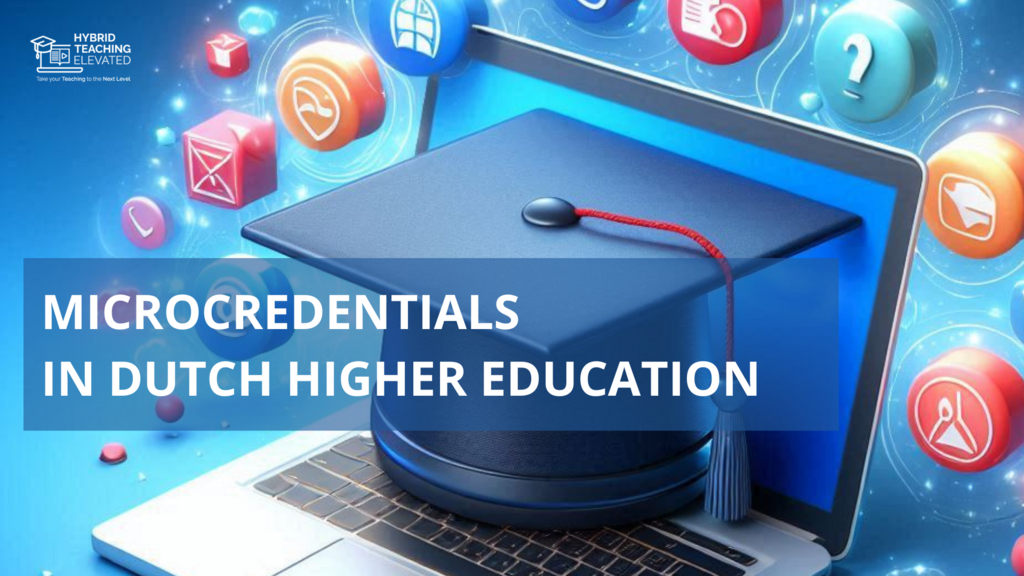Online Article
June 17, 2024

Article by Ron Barendsen & Roelien Wierda NHL Stenden University of Applied Sciences
NHL Stenden is a University of Applied Sciences in the north of the Netherlands. As partners in the EU-project Hybrid Elevate, one of our roles is to share the expertise we have gathered in our country with respect to building and implementing a valid and reliable national infrastructure to develop and issue edubadges and microcredentials as proof that certain learning outcomes have been achieved.
In the Netherlands, Institutions of Higher Education are increasingly interested in the potential of edubadges and microcredentials as a result of increasing commitment to Lifelong Learning and Flexible Learning Trajectories.
In this blogpost we will highlight the outcomes of a series of national projects, which have resulted in a fully operational technical infrastructure that allows Higher Education Institutions to create and issue both edubadges and microcredentials. In the Dutch context an edubadge can be awarded to enrolled students for both formal and non-formal learning whereas a microcredential can also be awarded to externals to validate demonstrated learning outcomes and always refer to accredited or accreditable education. A microcredential complies with national standards of quality and size.
Our University (NHL Stenden University of Applied Sciences) was one of the selected number of institutions to take part in the pilot studies. In the pilots, a number of scenarios were experimented with, in which badges were used for:
5. specific extracurricular activities, e.g. membership of the student board
6. a specific entry level
7. transversal competencies
8. university faculty and staff as part of their HR-cycle.
NHL Stenden focused on No 1-4 in particular and came to a number of interesting conclusions:
As a follow-up to the pilot studies that have led to the overall technical infrastructure our university has recently participated in the national pilot program around microcredentials, with a focus on the potential of microcredentials for Flexible Learning Trajectories and Lifelong Learning.
Watch this video to find out about the objectives and results so far:
https://youtu.be/a3C2BHyYJFE?feature=shared
Download the whitepaper about the Edubadges project here:
https://www.surf.nl/files/2019-06/Whitepaper-on-open-badges-en-micro-credentials.pdf